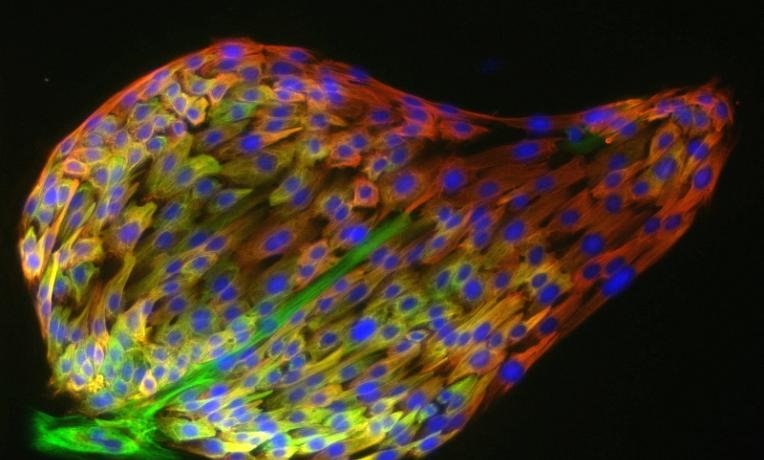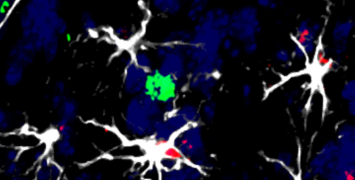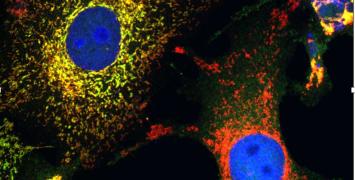Investigating signaling molecules in breast cancer
Significant progress has been made in understanding breast tumour biology. However statistics indicate that the number of breast cancer patients and victims will continue to increase. Dr. Bentires-Alj, ERC Starting Grantee at the Friedrich Miescher Institute for Biomedical Research in Basel, and his team are studying the roles of the still under-explored family of protein-tyrosine phosphatases (PTPs) in both normal breast development and cancers.
In a recent study, published in Nature Medicine in March 2012, Dr Bentires-Alj's team have revealed the fundamental role of the protein phosphatase SHP2 in breast cancer proliferation, invasion and metastasis.

October 2011, updated March 2012
The team's goal is to better understand cancer so as to better treat it. An estimated 1.1 million new cases of breast cancer are diagnosed in women worldwide each year. There are as many as 400,000 deaths from breast cancer each year.
The results of the research could lead to the definition of the role of protein-tyrosine phosphatases (PTP) in normal breast development and differentiation, and in the maintenance and progression of breast cancer. The acquired knowledge from this basic research could contribute to the design of targeted therapies which would improve clinical treatment of patients affected by breast cancer.
These studies use state-of-the-art ex vivo and in vivo models for studying breast pathophysiology. This research is innovative in the sense that it crosses the boundaries between developmental and cancer research fields and between basic science and clinical applications.
In more detail
Although progress has been made in understanding breast tumour biology, most of the relevant molecules and pathways remain undefined. Their delineation is however critical to a rational approach to breast cancer therapy. The Bentires-Alj lab focuses on the role of the under-explored family of protein-tyrosine phosphatases (PTPs) in the normal and neoplastic breast.
Virtually, all cell signaling pathways are modulated by reversible protein tyrosine phosphorylation, which has an important role in breast development and cancer. It is regulated by two classes of enzymes: protein-tyrosine kinases (PTKs) and protein-tyrosine phosphatases (PTPs). Whereas the role of specific PTKs in breast cancer is well studied (e.g. the oncogene ErbB2/HER2), little is known about the function of specific PTPs in this disease.
The chief goals of the Bentires-Alj lab are:
- to delineate the roles of PTP1B and other PTPs in normal breast development and differentiation; and
- to address the roles of PTPs in the maintenance of breast cancer and metastasis and to assess their merits as drug targets.
- Research results published in Nature Medicine
In March 2012, Dr Mohammed Bentires-Alj and his team have revealed in Nature Medicine the fundamental role of the protein phosphatase SHP2 in breast cancer proliferation, invasion and metastasis. SHP2 is necessary for the maintenance of the tumour initiating cells, called TICs, in a breast tumour. TICs seem to be the reason why patients affected with some cancers do not react to therapy or relapse quickly after remission. They seem to be more abundant in aggressive and refractory cancers. The scientists depleted SHP2 from breast cancer cells with a small hairpin RNA; proliferation and invasiveness in 3D cultures thus decreased while blocking the tumour growth and reducing metastasis. In some cases, their experiments even showed that SHP2 depletion could eradicate tumour initiating cells.
Knowledge about the signalling pathways controlling the functions of TICs is improving and could translate into effective therapies. "It is thus important that basic scientists, industry and clinicians work together to help these to bear fruit" said Mohammed Bentires-Alj.






